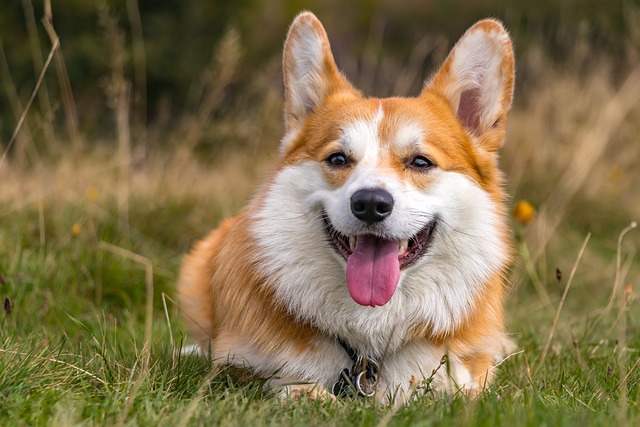


The Corgi is a small, intelligent, and active herding dog known for its distinctive short legs and long body. There are two main types of Corgis: the Pembroke Welsh Corgi and the Cardigan Welsh Corgi. Both types are highly social, affectionate, and loyal, making them excellent companions for families and individuals alike. They are particularly well-known for their playful, energetic demeanor and are often described as big dogs in small bodies. Corgis are also famous for their role as herding dogs, particularly in Wales, where they were used to herd cattle and other livestock.
The Corgi's history dates back over a thousand years, with its origins in Wales. It is believed that the Corgi was brought to Wales by Flemish weavers in the 10th century, who used them for herding cattle. Over time, the breed was further refined in Wales, where it became known for its excellent herding ability and small size, which allowed it to nip at the heels of livestock without being kicked. There are two distinct types of Corgis: the Pembroke Welsh Corgi and the Cardigan Welsh Corgi, both of which have slightly different origins and physical characteristics. The Corgi's popularity soared in the 20th century, especially after Queen Elizabeth II received two Pembroke Welsh Corgis, starting a royal tradition of owning the breed.
The Corgi is a small to medium-sized dog with a distinctive body shape. They have a long torso and short legs, giving them a unique appearance. Typically, a Corgi stands between 10 and 12 inches (25 to 30 cm) tall at the shoulder and weighs between 25 to 30 pounds (11 to 14 kg). Their coat is dense and weather-resistant, with a thick undercoat and a longer outer coat that comes in various colors, including red, fawn, sable, black, and tan. The Pembroke Welsh Corgi has a docked tail, while the Cardigan Welsh Corgi has a long, bushy tail. Both types of Corgis have large, expressive eyes and erect ears. They are known for their athletic build and agile movements despite their short stature.
Corgis are known for their friendly, affectionate, and energetic personalities. They are highly social dogs that enjoy being around people and other animals. They are very loyal and often form strong bonds with their families. While they are generally good with children, their herding instincts may cause them to try to herd younger children or other pets, so supervision is important in multi-pet households. Corgis are intelligent and independent thinkers, which makes them excellent problem solvers but can also lead to stubbornness during training. They are alert and tend to bark, making them good watchdogs, but they are not typically aggressive.
Corgis are active dogs that require regular exercise to stay healthy and happy. Due to their herding background, they have a lot of energy and need both physical and mental stimulation. Daily walks, playtime, and activities such as fetching or agility training are essential to keep them engaged. Corgis love to run and play, and they excel at activities that involve chasing or retrieving. While they are small in size, they are athletic and require more exercise than one might expect. Lack of exercise can lead to boredom and undesirable behaviors, such as excessive barking or destructive chewing.
Corgis are highly intelligent and eager to please, making them relatively easy to train. However, their independent nature can sometimes make them a bit stubborn, so consistent, positive reinforcement training is essential. Corgis respond well to reward-based training, using treats, praise, and toys as motivation. They are quick learners but may become distracted or try to assert their own will if they feel they are not being engaged. Early socialization is important to ensure that they are well-adjusted and comfortable around strangers, other dogs, and different environments. Socialization helps reduce the risk of behavioral problems, such as shyness or over-attachment to their owners.
Corgis are generally healthy dogs, but like all breeds, they can be prone to certain health issues. Some of the most common health concerns in Corgis include hip dysplasia, intervertebral disc disease (IVDD), and obesity. Due to their long backs and short legs, they are at risk for spinal problems, so it is important to avoid activities that put excessive strain on their spine, such as jumping from high places. Regular vet check-ups are important to monitor their health, and maintaining a healthy weight is crucial for their well-being. Their thick coat requires regular grooming to prevent matting and tangling, particularly during shedding seasons. Regular brushing and occasional baths will help keep their coat in good condition.
The average lifespan of a Corgi is between 12 and 15 years. With proper care, including regular exercise, a balanced diet, and routine veterinary visits, they can live long and healthy lives. Corgis are generally healthy dogs, but like all breeds, they may develop certain health issues as they age. Regular monitoring of their weight and activity levels, as well as preventive healthcare, can help extend their lifespan and improve their quality of life.
© copyright Dog Compendium 2024 - 2026